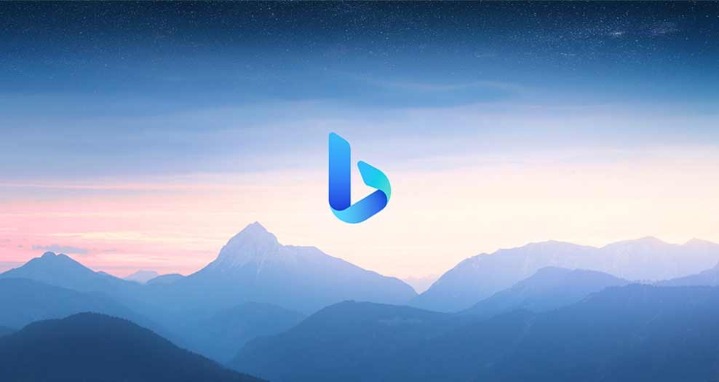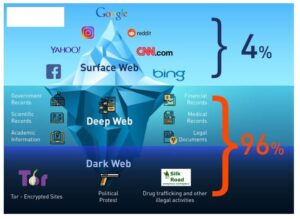
Search engines on the dark web are a bit of a contradiction because dark web sites by definition are not indexed by traditional search engines. Your real information could be exposed at these nodes, allowing third parties to intercept your dark web activity. That’s why we recommend connecting to VPN before accessing Tor—VPN encryption protects your data, and changing your IP adds an extra layer of privacy to protect you. The Tor browser allows you to browse the internet anonymously and visit inaccessible sites.

The term dark web first appeared in print in a 2009 newspaper article describing these criminal applications. That is why in 2006 they created “the most private search engine in the world”, which does not record, track, or share your personal data. Over the years, they added many additional privacy features, such as “Anonymous View” for added protection.
WormWeb is a user-friendly search engine built specifically for the dark web, providing quick and easy access to .onion websites. Also known as Not Evil, this dark web search engine offers access to a wide array of .onion content. The Dark Web Index is a powerful tool for accessing hidden services, but staying informed about risks is crucial. By following these guidelines, you can explore the Dark Web securely and efficiently. Onion sites are websites on the dark web that use the “.onion” top-level domain instead of “.com,” “.net,” “.gov,” etc. Onion sites use The Onion Router (Tor) software to encrypt their connections and enable anonymous communication.
Additional Security Measures
Its anonymous nature enables users to create and submit encrypted documents, chat securely, and receive private responses from journalists. ZeroBin’s onion address ensures your traffic is routed through multiple nodes, so it’s challenging for any third party to trace any message back to your original location. You can access DuckDuckGo on the surface web, but a Tor version is also available. You’ll get unbiased, organic search results without getting any of your browsing behavior logged. Using DuckDuckGo over Tor will also let you see onion sites and normal pages in your search results. Discover how to safely navigate dark web onion sites while ensuring your privacy and security online.
Use A VPN
Users can ask questions, share answers, and engage in discussions without revealing their identities. It’s maintained by a volunteer-run collective from the USA that protects the platform from malicious attacks and pledges to support social justice and progressive causes. Riseup’s secure email and chat help individuals communicate without fear of surveillance or data interception. With onion sites like Wikipedia, you can continue learning and gathering information on a wealth of issues, even in places where the standard Wikipedia is restricted or censored. I can explore the dark web with confidence, knowing my data is secure.” – Ava R. Dark web links operate on a system of layers (like an onion) where each layer encrypts traffic as it passes through multiple relays.

How To Access The Dark Web Using Tor Browser (2025 Guide For Beginners)

Go to the directory where you saved the downloaded Tor Browser installation file. Choose your language and click “OK.” Follow the installation prompts. There are four nodes between your computer and the website you want to connect to. The browser is available for Linux, macOS, and Windows desktop and laptop computers. A Tor Browser from the Tor Project is available for Android, and The Onion Browser from developer and journalist Mike Tigas is available for iOS mobile devices, which the Tor Project links to.

We are a Tor network dark web directory listing created in order to monitor and study popular darknet marketplaces and onion services. By following these guidelines, you can safely explore the dark web and its plethora of .onion sites, unlocking a world where privacy and freedom are at the forefront. Remember, while the dark web offers a unique environment for secure browsing, it is always essential to navigate it with caution and awareness.
Another significant factor behind disappearing .onion links is action taken by law enforcement agencies. When illegal activities or content are identified, authorities may seize servers, arrest site operators, or dismantle entire networks. Consequently, previously active .onion addresses abruptly stop working, leaving users searching for new, trustworthy sources. The Tor network understands these addresses by looking up their corresponding public keys and introduction points from a distributed hash table within the network.
Saved Searches
The Tor browser provides access to “.onion” websites, which are Tor hidden services that you can only access through the Tor browser. You can access these websites without worrying about someone snooping on a Tor exit node, offering more private browsing of what is known as the deep web. Onion sites are hosted on the Tor network, enabling them to share information without revealing users’ IP addresses. They facilitate secure communication over the web and protect from third-party surveillance. Regular browsers can’t open Onion sites because they aren’t part of the standard domain name system. When people go on about the so-called dark web, they’re usually talking about onion sites, which aren’t searchable via Google or accessible via standard browsers.
Why Is Tor So Slow?
- It offers reliable news coverage without exposing readers to harmful or illegal material.
- It is essentially a list of all the notable websites available on the Tor Network that is kept in a single, organized place.
- DigDeeper offers in-depth analysis of technology and privacy topics rarely covered by mainstream media.
- It doesn’t track your IP address, search history, and other personal data.
- While the Hidden Wiki is a popular directory for accessing dark web resources, it is far from being completely safe by default.
There’s no broad consensus on dark web safety, but you at least need to use Tor and VPN together. Once you have those, there are several ways to tunnel through the dark web. Navigating the dark web requires extra layers of privacy, not just because of its content but due to legal scrutiny. The US Supreme Court has indicated that even casual browsing could lead to legal consequences. Get the latest in privacy news, tips, tricks, and security guides to level-up your digital security. As stated above, we don’t condone any activity—on the dark net or otherwise—that is forbidden by law.
The tradeoff is that you don’t get personalized search results, as DuckDuckGo doesn’t collect user data. But this tradeoff is worthwhile when seeking to browse with the utmost privacy. With your Tor connection established, you can begin surfing the web with the utmost privacy. Like standard browsers, Tor has an address bar where you’ll type the domain you want to visit.
Essential Tools For Safe Browsing
Torch is one of the oldest dark web search engines, having served the darknet community for years. It boasts a vast archive of over 400,000 pages, providing comprehensive coverage of .onion sites, including forums, blogs, and marketplaces. The dark web is a part of the internet that isn’t accessible with regular browsers or search engines like Google and Bing. To explore it, you need special tools like the Tor browser (short for The Onion Router) and search engines designed specifically for the dark web.
BBC News (and Other Leading News Sites)
However, there are several “.onion” search engines like “onion.city”, “onion.to”, and “notevil” that you can use to find suitable marketplaces. From this point onwards, you can enjoy complete anonymity and security while being able to access “.onion” websites and other dark web browser domains. In 2002 the dark web began to grow significantly when researchers backed by the U.S. Journalists in overly restrictive countries also appreciate the anonymity of the dark web.
It contains 7,500 terabytes of information, compared with only 19 terabytes of information in the “surface” web. To look at it in a different way, it makes up between 90% and 95% of the internet. The dark web and the deep web are often used interchangeably, but they’re two distinct concepts.
Are Onion Sites Safe?
If you’re not using an encrypted communication protocol (e.g. using HTTP instead of HTTPS), this can allow a snooper to intercept and read personally-identifying data in the route’s final leg. While onion sites themselves are not illegal, they can host illegal activities. Accessing onion sites for legal purposes is usually considered legal, depending on local laws. Onion sites function by routing internet traffic through a series of volunteer-operated servers in the Tor network, which encrypts the data and hides the user’s IP address.



